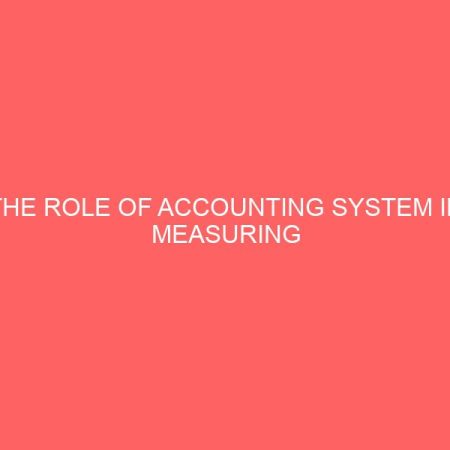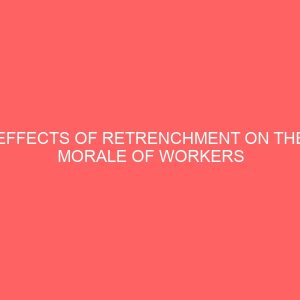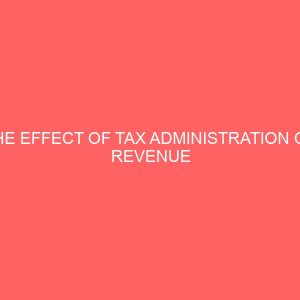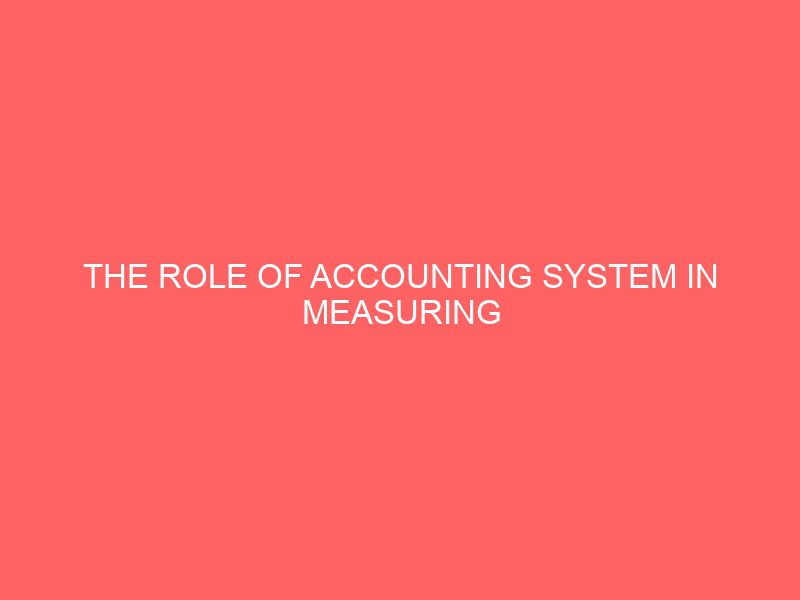Description
Abstract
The role of accounting system in measuring organizational performance of transport company ( A Case study of ABC Transport). This research work is designed to show that the best companions in the management of any transport is a good accounting system with particular emphasis on ABC transport company. It is worthy to say that good accounting system is really maintained in most privately owned companies in Nigeria. Only few among them lack good accounting system. Hence this project strives to show that good accounting system exist in most private companies. This discussion in this project is done in five chapters.






